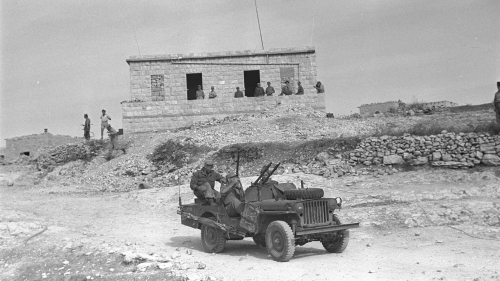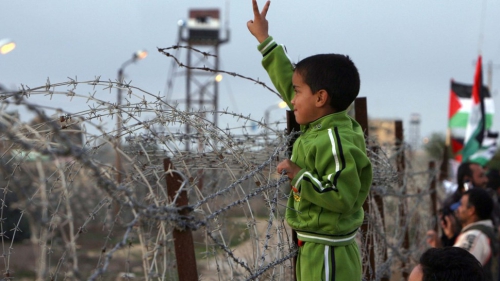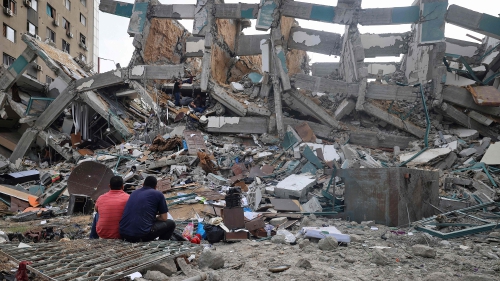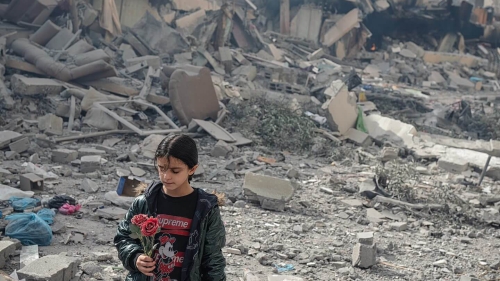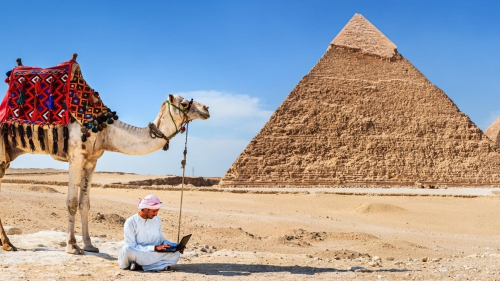Banned in Ames
I was excited to learn that a friend in Iowa was running my articles in her YWCA newsletter that is circulated around the University of Iowa campus in Ames. Then I learned that the stories were stopped.
An unnamed member of the history department had complained that my stories were one-sided propaganda against Israel and offensive. She or he threatened, "Stop these stories or I will stop reading your newsletter."
My immediate reaction to that news was, "Good, I'm reaching someone and getting a reaction." Growing up in Jerusalem, I had already experienced censorship. So much Arabic literature, not to mention literature in other languages, was off-limits at my school. Some books and tapes were forbidden by my own people, by the Israelis, by circumstance. Often the cost of books was prohibitive if they were even available.
I went out of my way to get banned literature, because I felt that this must be a sign of, if not quality, then, at least truthfulness. In my efforts to read forbidden work, I went to the trouble of copying, by hand, borrowed books.
When my own work was censored, I thought, "What I'm writing must be good. Someone wants to put a stop to it." Still, the idea that my words had been silenced at the whim of one person wore on me.
Recently, I read a book written in English about women in Islam. The author had only bad things to say. She, herself, was not a Muslim or an Arab, nor did she attempt to look at the texts through their eyes. She quoted the Qur'an and the Hadith, the latter considered Islam's divine literature. Much of her use of these texts was out of context and limited by her own external interpretation.
Further, this author's position was being presented to people unfamiliar with the Qur'an or the Hadith and who would likely only investigate those books and their messages through this avenue. The image of Islam the writer presented did little but disfigure the religion in general.
I relate this story to explain that I understand how hurtful it can be to give only one perspective. I understand the complaint of one-sidedness, to an extent. But on the other hand, I do not believe that telling my story from my perspective is one-sidedness. My side of the story is the only one I can tell unless I spend a lifetime becoming a historian.
Some writers and publishers fear criticism, mostly because of the monetary bottom line. Even my friend's effort to publish potentially unpopular material puts her nonprofit organization at risk of losing contributions.
Still, bold writers and intellectuals in this world risk much more than a drop in funding. While we value criticism as opening the doors to reflection and comment, we also fear disapproval that leads to violence.
Consider the many Arab intellectuals who have been assassinated for speaking out and saying something that is true, but unpopular. Naji Al-Ali, the cartoonist, and Ghassan Kanafani, the writer, are two of the most well-known among the seemingly endless list of Palestinian and Arab intellectuals who have been assassinated for their ideas.
What a relief to know that what I write and send to America can do no more there than cause someone to throw down the newsletter in disgust or complain to the publisher.
Certainly, I want to assure my critic, I am not writing to stir up hate or violence. I know about the literature of hate. I worry, though. How else can I tell my side of the story? How can I explain that not all terrorists wear the black and white kufia, the Palestinian headdress?
How can I talk about Muslim men like my father who clean up in the kitchen - just like my American host-father? My father has visited Mecca, the required Muslim pilgrimage, but would never be disrespectful to his wife or be cruel to his children, male or female.
How can I explain that I relish wearing the veil, and that it is an honor to me, even though I would not ask even my unveiled sisters or my brother who does not even pray to follow my religious lifestyle.
As for my alleged anti-Israel bias, I find it difficult to comment about life on the West Bank without mentioning Israel. After all, the occupation continues and the Israeli soldiers remain in the streets of my city. I must say, I do my share of complaining about Arab governments and the Palestinian Authority, as well.
I'm glad someone cares enough to object to something I've written. Still, I bow my head to think that I am considered anti-this-or-that because I write from an Arab perspective. How do I overcome that? My stories are not anti-any-nation or anti-anybody. They are anti-oppression, anti-injustice, anti-ignorance.
If expressing myself about these things means pointing a finger at Israel, my own people, Americans, whomever, then so be it. In this particular case, the "other side" of the story is readily available. Instead of being insulted, I'll take the censoring of my writing as a compliment and persist just the same.








